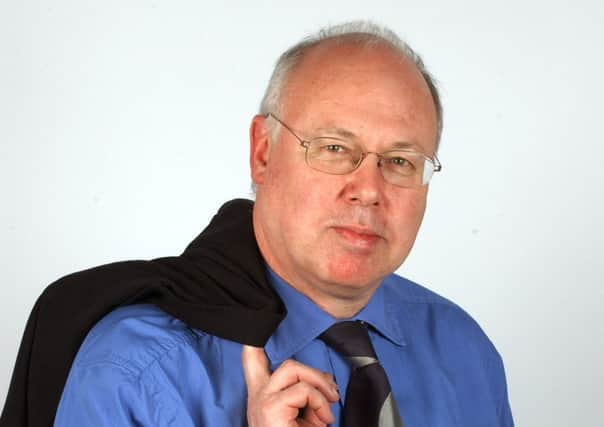George Kerevan: Law firms not helped by banks


Why is the most prestigious independent law firm remaining in Scotland being gobbled up by a multinational? Answer: Dundas & Wilson has seen its revenue drop 57 per cent since the collapse of the commercial property boom.
Last year saw an unprecedented number of mergers and takeovers in the Scottish legal world, with traditional names swallowed up by UK groups or undertaking defensive mergers: DWF nabbed Biggart Baillie, Shoosmiths took Archibald Campbell & Harley, Pinset Masons acquired McGrigors, and Paull & Williamsons merged with Burness. Why this unprecedented cull? It can’t be put down to parochial business attitudes. If anything, the bigger Scots law firms were too willing to expand out of niche work during the easy boom years. Some (not enough) even tried transforming themselves into UK brands, with McGrigors leading the charge.
Advertisement
Hide AdAdvertisement
Hide AdWhat went wrong can be summed up easily: RBS and HBOS. The Scots banks provided the prime source of income for much of Scotland’s legal market during the boom. But the effective shift of corporate control southwards after the banks were semi-nationalised has reduced the market for Scottish-sourced legal work. High-value business associated with cleaning up the banks’ toxic affairs has gone to London.
However, the relative abundance of legal and paralegal skills north of the Border could still work to Scotland’s advantage as doing business in London becomes ever more expensive. Earlier this year, the Scottish Government enticed Ashurst (the UK’s seventh largest law firm) to relocate 150 jobs from London to Glasgow.
Lee pays price for taking eye off ball
THE perfect storm that battered the UK and Scandinavia this month caused net claims for insurer RSA, formed in 1996 by the merger of Royal Insurance and Sun Alliance.
Unfortunately, a worse storm has hit the company: chief executive Simon Lee has been forced to quit after revelations of yet more shortfalls in the capital position of RSA’s Irish subsidiary.
RSA will pour a further £135m in to the Irish business in addition to the £70m already injected. Lee walks off with a year’s salary (£824,000) but shareholders face a crash in the share price.
RSA ranks among the leading general insurers in the UK, with operations in 28 countries.
Though pre-tax profits are well down following the 2009 recession, RSA appeared to be focused on new business opportunities.
Net written premiums across the group rose by a respectable 7 per cent to £6.7bn, in the first three quarters of 2013.
Advertisement
Hide AdAdvertisement
Hide AdWhile business rose only 3 per cent in core UK and European markets, premiums in emerging markets jumped 17 per cent, suggesting RSA is well placed to ride the Asian consumer boom.
What’s gone wrong? Lee is normally cool under fire.
He claims to have left his final exams early at Leeds University to play cricket – getting his degree and scoring 45 runs.
At RSA, his game plan has been acquisitions – more than 40 - after a post-recession crisis saw the group pull out of the US altogether and exit the UK life insurance market.
It could be that Lee has expanded RSA too much, too fast and so taken his eye of the ball.